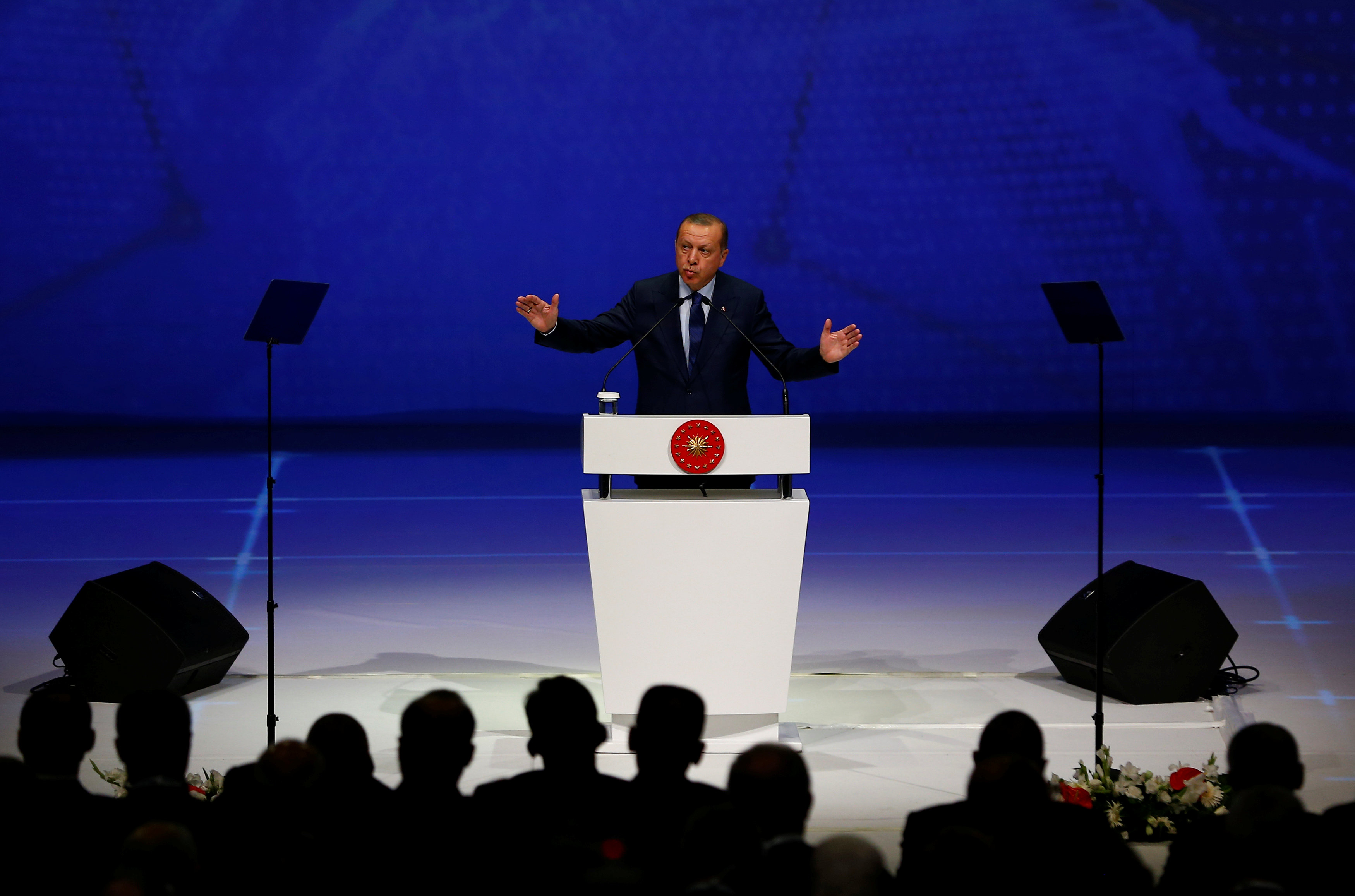
By Yesim Dikmen and Daren Butler
ISTANBUL (Reuters) – Late one night in early February, Ibrahim Kaboglu learned that he had been targeted in the sweeping crackdown that followed Turkey’s failed coup a year ago.
“Sir, you are in the decree,” a colleague told the 67-year-old constitutional law professor by phone, referring to a list of 4,000 employees suspended from their jobs in a single swoop.
Five months later, as Turkey’s government prepares to commemorate thwarting the attempted overthrow of President Tayyip Erdogan, Kaboglu is still barred from his job at Marmara University and a year-long purge continues – hitting the judiciary particularly hard.
A quarter of judges and prosecutors have been sacked, leaving under-resourced courts swamped with tens of thousands of cases against people targeted in the crackdown, and weakening a pillar of constitutional authority in Turkey.
Kaboglu was half-expecting the call, he said, and he chose to carry on working into the night rather than wake up his wife and daughter. But the sense of inevitability could not soften the blow.
“For a jurist who has reached the last stage of his professional career, to be included in a … decree prepared in an anti-constitutional way, has an impact that is worse than death,” he said. “Because your whole life has passed in a struggle for the law.”
Around 50,000 people have been jailed pending trial and 150,000 people like Kaboglu suspended from work since the failed July 15, 2016 putsch, when rogue soldiers commandeered warplanes, tanks and helicopters, attacked parliament and tried to abduct Erdogan, killing 250 people.
The president’s ruling AK Party says the coup was planned by supporters of U.S.-based cleric Fethullah Gulen deeply embedded in Turkey’s institutions – the army, schools and courts – and only a massive purge could neutralize the threat.
But for those targeted in the crackdown the effect has been devastating. Stripped either of their liberty or their livelihood, they have little prospect of employment.
“You are deprived of all your rights. They say you cannot work (in Turkey) … You cannot work abroad either. My pension rights were taken away,” Kaboglu told Reuters.
The wider impact on the judiciary has been an erosion of legal safeguards, Kaboglu and other critics say, accusing Erdogan of using last year’s attempted coup as an excuse to trample on constitutional rights.
ONE-MAN RULE
Turkey’s main opposition leader, Kemal Kilicdaroglu, echoed that charge at a rally in Istanbul on Sunday, the biggest protest yet against the crackdown, when he described the state of emergency imposed last July as a second coup.
“All powers of the legislature, judiciary and executive have been concentrated in one person,” Kilicdaroglu told protesters.
“The independence and impartiality of the judiciary, which underpins democracy and the protection of all rights to life and property, must be ensured,” he said.
The crackdown, and a bitterly fought April referendum which granted greater presidential powers to Erdogan, have strained Turkey’s ties with the European Union and put its decades-old ambition to join the bloc in limbo.
Turkey’s justice ministry says “procedures” have been launched against 169,000 people. Some had used a messaging app favored by Gulen’s network, others worked at schools founded by his supporters or held accounts at a Gulen-linked bank.
Even ownership of one-dollar bills has been enough to raise suspicion. Authorities believe Gulen supporters, labeled the Gulenist Terrorist Organisation (FETO) by the government, used the notes to identify fellow members.
Arrested soldiers have been paraded in court in front of television cameras, crowds throwing nooses at them in a call to reinstate the death penalty for the coup plotters. Other detainees wait to learn their fate.
“They penetrated everywhere,” Deputy Prime Minister Numan Kurtulmus told Reuters, adding that eliminating the influence of Gulen, a former ally of Erdogan as he built up his power base, would take years.
“We are talking about a structure (going back) more than 40 years, hence it is not possible to cleanse it in one day,” Kurtulmus said.
Acknowledging that mistakes could be made in a wide-ranging purge, he said 33,000 people had been restored to their posts. People wrongly caught up could also apply to a commission which is starting to operate.
“This is a process that will continue for a long time. We have to continue very decisively,” he said, adding that this weekend’s commemoration of the failed coup would strengthen Turkey’s resolve to continue to confront those behind the coup.
“Neither the heroism nor the treachery should be allowed to be forgotten … Every one of our 80 million people, whatever their political view, should support our fight against FETO,” he said. “This cleansing will go on to the end.”
Erdogan has been reinforcing that message in a series of high profile ceremonies this week, which will culminate in a speech in Ankara at 2.34 am on Sunday, a year to the minute since parliament came under fire from the coup plotters.
For Kaboglu, who described himself as an enemy of the Gulenists when they were in alliance with Erdogan’s ruling AK Party, being “thrown in the same bag” as them in the post-coup crackdown was a cruel irony.
“Those who were affected were people like me who defend the law,” he said. “I defended human rights and the state of law 15 years ago and I defend them today. I will defend them in 10 years time if I live that long.”
(Additional reporting by Orhan Coskun and Ercan Gurses; Writing by Dominic Evans; Editing by Giles Elgood)











